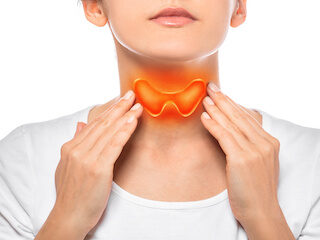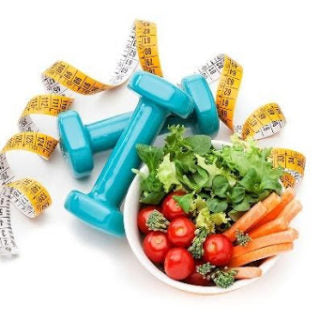by Anthony Benjamin on Oct 12, 2022

Navigating Food After Weight Loss Surgery
ProCare Health’s team realizes there’s more to life after weight loss surgery than taking supplements, though it can seem otherwise. Shopping for the right foods and even eating out can be a source of stress before and after you’ve undergone your adjustable band, DS switch, gastric bypass, gastric sleeve and/or mini bypass weight loss surgeries (WLS).
We applaud your efforts to take care of yourself and choose a healthy life, and we care about your success. To make going forward a bit easier, here are a few tips to help you shop, plan meals, eat out, and get used to living with your exciting new lifestyle that promotes health and well-being.
Grocery Shopping & Cooking Tips
 Watch food labels.
Watch food labels.
First, start by looking in your pantry and read food labels. Donate those with:
- High fructose corn syrup (which is not digested by the body and goes directly to fat)
- Hydrogenated or partially hydrogenated fat (saturated fat)
- Trans fat
- Bleached white flour
- Artificial sweeteners and flavors
When you grocery shop, we recommend avoiding processed carbs and packaged foods, but we know life is busy and you need to have a few things on-hand. The good news is there are a variety of products without these harmful ingredients. Many of them will be labeled “Organic” and will use healthy fats in moderation and cane sugar to sweeten.
Look for whole grains.
Again, we recommend avoiding excess carbs, but when you need bread or pasta, if the first ingredient says “whole grain,” (not followed by things like bleached white flour, partially processed grains, or other ingredients), chances are it is truly a whole grain food. Look for the Whole Grains Council’s logo to be sure it gives you at least 16 g of whole grains per serving and lots of healthy fiber.
Buy Organic
Pesticides can make you sick and contribute to weight gain. We know organic can be pricey, but you’ve taken this big step to get healthy, so when you can, we recommend selecting the following organic, grass-fed, and all-natural items:
- Beef and poultry
- Dairy products
- Coffee and tea
- Fruit with edible skins like peaches, apples, strawberries, blueberries, grapes
- Veggies like bell peppers, celery, lettuce, potatoes, tomatoes
- Bread, pasta, and snacks (in small quantities)
Bananas, avocados, melon, and anything that you peel or scoop out of the outer shell, is okay to buy conventional. If you can’t buy organic, don’t eliminate items from your diet, just make sure you wash your meat and produce well and cook thoroughly.
Throw out the fryer.
First, plan your meals in advance and shop for your food once a week. This avoids impulse eating and being too tired at the end of the day to cook a healthy meal. Preparing lunches ahead of time will also eliminate the run for fast food.
As for cooking – for less fat and tastier options, baking, broiling, grilling, roasting, poaching, and steaming are all great options (avoid frying). Crockpots and pressure cookers make super easy meals that can cook while you’re at work and keep your food moist and infused with flavors.
Tip: nonstick cooking spray instead of oil saves 14 grams of fat.
Eating Out 
Fast Food Redo: Salads
It’s no secret that fast food is loaded with unhealthy fat, chemicals, and high-fructose corn syrup. Thankfully, most fast food places have salads on the menu. But watch the dressings and fake bacon bits. Ask for an oil and vinegar combo or check their vinaigrette or Italian dressing ingredients – they tend to be lower in fat and calories than the blue cheese and ranch options.
Be aware though, some salads loaded with toppings can come in with higher fat and calorie content than a cheeseburger. Be conscious of what you are eating. Check the fat, calorie, and Protein content when possible.
Have it your way!
Restaurants are used to patrons with special dietary needs. Don’t be afraid to ask for your chicken grilled rather than breaded, no bread or bun on your sandwich, and swap fries for the daily veggie. And be mindful of the sides like mayo, ketchup, and dips – use sparingly or ask for a mustard substitute.
Tips for Healthy Eating After Surgery
- Please eat! Don’t make food the enemy. Restricting calories slows your metabolism. When we don’t get enough food, we lack the fuel needed to create energy for our 37 trillion cells, which can lead to many health issues. Eating smaller balanced meals every few hours boosts metabolism and weight loss.
- Buy a food scale. It may seem complicated at first, but measuring accurately will become a snap. You’ll feel less frustrated by knowing what size grams and ounces are and what they look like until eventually, you’ll know just buy eyeing it.
- Eat 60-90 grams of protein daily and eat it first. This is one of the most common guidelines. Eating protein is vital to health and success post-surgery because protein keeps you feeling full for 3-4 hours and helps you burn calories at rest by maintaining muscle mass. Most gastric bypass, band, and sleeve patients need somewhere in the range of 60-90 grams of protein per day; duodenal switch patients may need up to 120 grams (check with your surgeon for specific recommendations).
- Get your fruit and vegetables. Right after surgery, you may have some fruit and vegetable restrictions, but eventually, when it’s okay to add those back in, it’s important to include fruits and vegetables daily with your healthy protein. You’ll benefit from the fiber, the readily available nutrients, and the antioxidants.
- Monitor sugar and fat intake. With gastric bypass, consuming high fat and high sugar may cause “dumping syndrome.” However, regardless of which weight loss surgery you’ve chosen, you will benefit from limiting sugar and fat. Aim for less than 10 grams of fat and less than 10 grams of sugar per serving. If what you’re eating lists more per serving, simply cut the amount in half. Also, try to have both sugar and fat come from natural sources, like fruit and coconut oil.
- Keep the kitchen and dining areas a place for food only – no work, talking on the phone, watching TV. It leads to mindless snacking.
- Plate your food first. Portion out your food before you sit down at the table to eat. Don’t eat in front of the TV and avoid large serving bowls of food on the table.
- See no evil, Eat no evil. Keep your family’s snacks and sweets out of eye-view and make them not easy to reach.
- Resist cravings. Cravings will subside so be sure to occupy yourself with music or a hobby until the urge passes – and it will pass. Cravings can be telling you something too. Chocolate? You may need magnesium. Salt? You may need electrolytes. Often the urge to snack is really a hydration issue, so drink a little water and see if that helps.
- Set down your utensil between bites. This will encourage you to chew your food completely. Readying the next bite while you’re chewing puts you into “auto pilot mode.”
- Use a float device for drinking. Learn to drink smaller mouthfuls and not overfill your pouch. A float device will only allow you to drink 15 cc or ½ oz. of liquid at one time.
- Drink before or after your meal but not during. Taking a sip of tea after a bite is normal, but after weight loss surgery that sip will flush food out of your pouch leading you to overeat and delaying any ‘full’ sensation.
Your Rule of 30 
After weight loss surgery, it takes time to realize just how small your new stomach is and what it will hold. There are four things that can help with eating and drinking and staying fit by remembering the number “30.”
- Chew your food 30 times.
- Take 30 minutes to eat.
- No drinking 30 minutes before your meal, during your meal, or until 30 minutes after your meal.
- Try to complete 30 minutes of physical activity per day.
Chew your food 30 times. This may sound extreme and it’s okay if you don’t get to 30 (most of us don’t) however, chewing thoroughly slows you down and prevents food from getting stuck. Think “applesauce consistency.” By eating slowly, your brain has time to register your stomach being full, which can take up to 20 minutes and keeps you from feeling sick when you’re finished.
Take 30 minutes to eat. If you’re newly out of surgery, you’re eating really small portions, so 30 minutes will be too much; but as you settle into a regular eating plan, this is critically important. You can set a timer, put your fork or spoon down in-between bites, use baby silverware, get up and walk around between bites – whatever helps you get to your 30 minutes, do it!
No drinking with a meal, 30 minutes before, or until 30 minutes after. We said this above but it is worth repeating. Some programs follow this recommendation, others don’t. The theory is that if you mix water with food it allows the food to go through your stomach faster. You may not feel as full, become hungry sooner, and eat more throughout the day.
Keep in mind, sometimes hunger is really thirst and by drinking water, you satisfy your thirst and are not hungry anymore. However, if you’re truly hungry for food and you drink water instead, it may cause you to become ravenous and eat whatever you can get your hands on, eating too fast and too much. Over time, you will learn hunger cues versus thirst cues.
30 minutes of physical activity daily. The latest and most consistent recommendation for activity and exercise is to get 150-250 minutes per week for optimal health and weight loss. If you can achieve 30 minutes per day, you will have completed 210 minutes by the end of the week.
You don’t have to get all 30-minutes in at once. A 10-minute walk in the morning, at lunchtime, and 10-minutes when you get home can not only boost your metabolism, it can give you a pep in your step and a clear mind. Other options include taking the stairs whenever possible, parking farther out in the grocery store parking lot, and walking the dog an extra loop around the neighborhood. Do what you can – any activity is better than no activity. Pretty soon, you’ll find you’re doing more naturally and enjoying it.
Success on Your Weight Loss Journey
As with any weight loss or health program, these recommendations are simply professional “guidelines.” You are a unique individual with unique needs, so consult your doctor and program counselor to find what works for you. Success comes in many forms – we wish you great success on your journey and congratulate you on your decision to choose getting healthy!
ProCare Health’s Easy Once-Daily Multivitamins
As you prepare for weight loss surgery and begin your post-op care, remember ProCare Health’s team of scientists works with Bariatric Doctors and Dietitians at the University of MO-Bariatrics to ensure that our bariatric supplements and nutritional products provide the strict dietary requirements needed for post weight loss surgery patients. And, we use input from patients like you to keep our products satisfying, easy to take and digest, and cost-effective.
Our once-daily chewable multivitamin is now the vitamin of choice due to ease and affordability, as is our non-GMO, gluten-free, all natural 65% dark chocolate calcium bar plus vitamin D, making adherence to the vitamin ritual more enjoyable. We encourage you to browse our chewable, liquid, and easy-to-digest nutritional supplements and products and pre-order so you’re ready to get started after surgery. And feel free to contact us if you have questions or need help choosing a product.

Thyroid Health: Obesity & Bariatric Surgery

Why Does Weight Loss Surgery Work?

Find Your Support Systems

